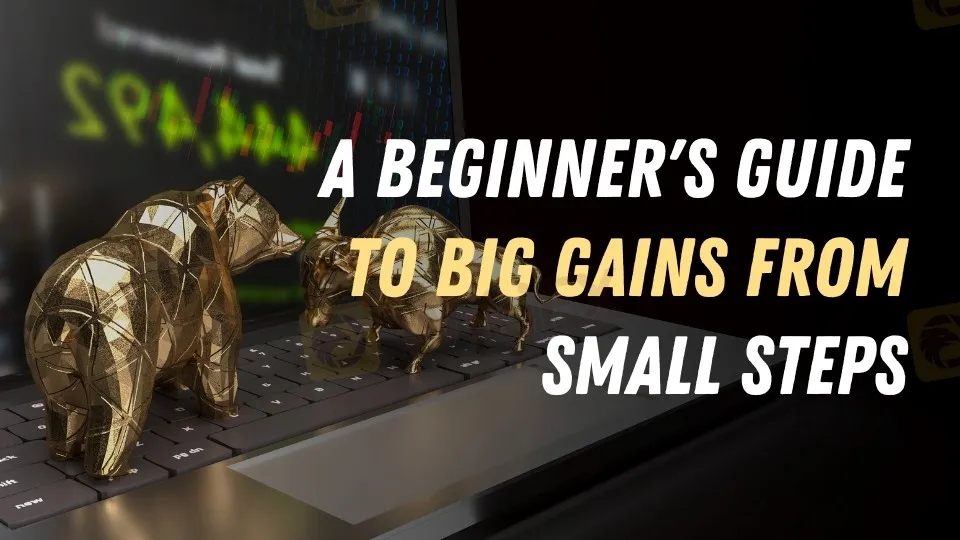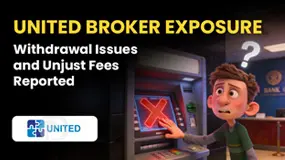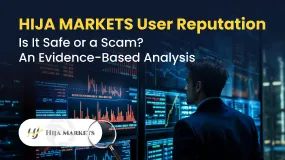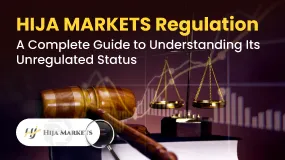Abstract:Learn the basics of Forex trading, from choosing a trading style to mastering risk management. Start small, think big, and boost your trading success.

Imagine waking up to find that your deal has generated a few hundred bucks overnight. Seems like a dream? It is a fact for many traders who have figured out how to trade Forex. The foreign currency (Forex) market is a vibrant and fast-paced environment where fortunes are built on a daily basis, yet success does not happen quickly. It's about taking little, deliberate moves toward great benefits. Whether you're just starting out in trading or hoping for long-term success, this book will coach you through the necessary procedures to make those modest efforts pay off.
Choosing the Right Trading Style For You
Choosing your trading style is one of the first decisions you'll need to make as a novice Forex trader. Will you be a fast-paced day trader or a patient swing trader? Every trader has their own method, which is typically affected by their lifestyle and risk tolerance.
For example, John, a New York-based day trader, gets up early to catch European market openings and employs rapid, frequent transactions to profit from minor price fluctuations. His trading is rapid and intensive, necessitating continual attention to charts and market news. Sarah, a swing trader located in London, on the other hand, loves to hold her positions for many days in order to do more in-depth market study. She operates at a slower pace, focusing on fewer deals with bigger potential rewards.
The important takeaway? Your trading approach should be compatible with your personality, risk tolerance, and free time. Whether you prefer scalping, day trading, or swing trading, picking the proper strategy is the first step toward success.
Creating a Trading Plan: The Path to Success
A trading strategy is similar to a GPS for your Forex journey—it directs your actions, keeps you on track, and keeps you from wandering aimlessly. Tom, a skilled Forex trader, credits much of his success to having a sound trading plan. He contains defined goals, risk management measures, and trading hours that are appropriate for his lifestyle. He points out that without a strategy, it's easy to become engrossed in the market's volatility, leading to emotional decisions.
Begin by establishing your financial objectives—are you looking for continuous, incremental earnings or massive wins? Next, decide how much of your funds you are willing to risk on each deal. Will you utilize stop-loss orders to limit risks? Finally, make explicit guidelines for entrance and exit, as well as the sorts of deals you're most comfortable with.
A well-developed trading plan will give you the confidence to remain focused even during instances of market volatility.

Which One to Use: Technical or Fundamental Analysis?
When it comes to analysis, the Forex market is divided into two camps: technical and fundamental analysis. Which should you go with? In truth, both are important, but they each provide a unique viewpoint.
Technical analysis is the study of historical price movements, chart patterns, and technical indicators such as moving averages, RSI, and Fibonacci retracements. Lisa, a Forex trader who largely depends on technical analysis, forecasts future price changes using candlestick patterns and trendlines. She believes that technical analysis provides her with a better insight into short-term market activity.
Fundamental analysis, on the other hand, focuses on understanding the economic variables that drive currency values, such as interest rates, inflation, and geopolitical events. Mark, a long-term trader, for example, follows US Federal Reserve meetings and worldwide trade deal news. He feels that knowing the macroeconomic climate might help him get a strategic advantage in Forex trading.
The majority of skilled traders combine both tactics. While technical analysis is useful for pinpointing entry and exit points, fundamental analysis may help you see the broader picture.
Mastering the Art of Risk-to-Reward Ratio
Risk management is the ultimate key to money preservation and longevity in the Forex market. The risk-to-reward ratio is one of the most important concepts to understand. Simply explained, this is the ratio of how much you're prepared to risk in order to possibly benefit.
For example, if you're ready to put up $100 on a transaction but hope to make $300, your risk-to-reward ratio is 1:3. Alex, a seasoned Forex trader, typically uses a 1:2 ratio for his deals. He adds that by ensuring a higher potential return than risk, even with a 50% success rate, you will come out ahead in the long term.
But there's a catch: while it's tempting to go for huge returns, never risk more than you can afford. A reasonable rule of thumb is to risk no more than 1-2% of your trading account on every individual deal.
Utilizing Demo Accounts to Practice and Refine Skills
Demo accounts are a valuable tool that any newbie should use before risking real money. These accounts let you practice trading with virtual money, allowing you to fine-tune your strategy and get an understanding of the platform without putting your money at risk.
Emma, a new Forex trader, attributes her early success to the time she spent on a trial account. She was able to experiment with alternative methods, evaluate her reactions to market volatility, and learn from her failures all while not losing money by replicating genuine market circumstances.
It's tempting to get directly into live trading, but patience is essential. Demo trading will boost your confidence and provide you with the required experience to succeed in the real market.
Final Thoughts
Forex trading may be frightening at first, but with the appropriate technique, you can effectively traverse the market. Begin by selecting a trading style that complements your personality, and then develop a sound trading strategy. Understand the technical and basic tools at your disposal, and remember to keep your risk-to-reward ratio in check. Most essential, use demo accounts to hone your abilities before moving on to actual trading. Remember that taking tiny, steady actions over time is the key to generating large returns in Forex.
Trading does not have to be risky. With information, experience, and dedication, you may maximize your chances of long-term success in the Forex market.











